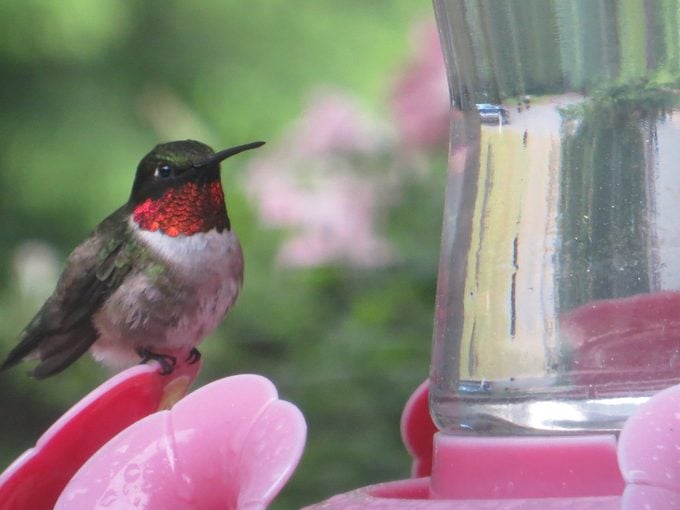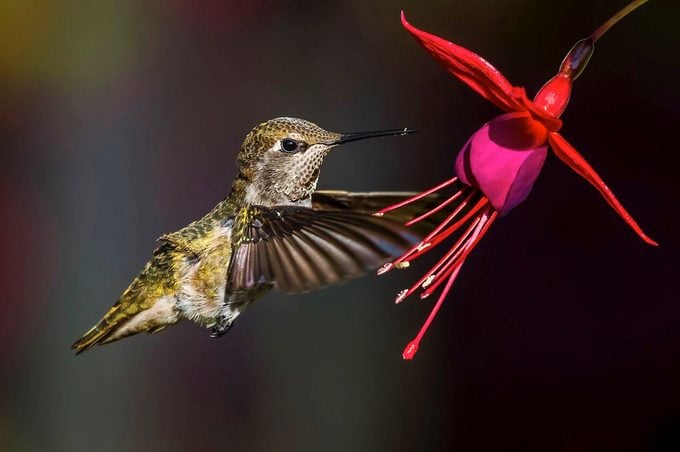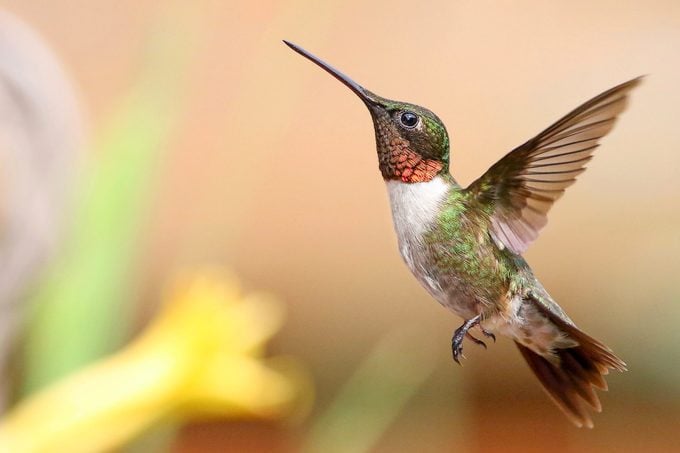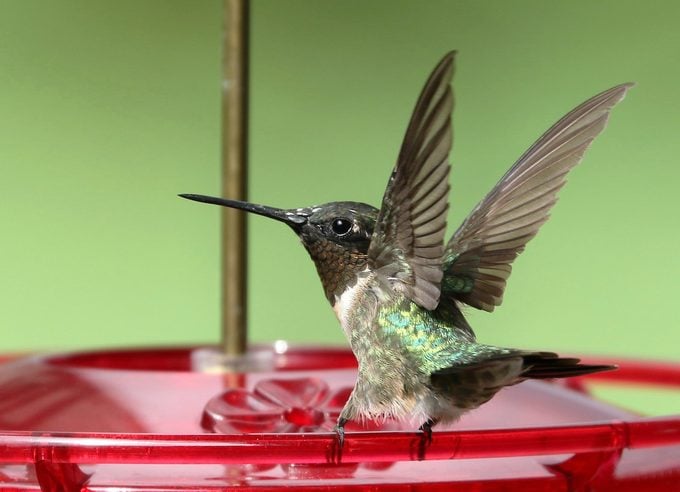My Hummingbirds Have Disappeared: What Happened?
Updated: Jul. 12, 2023
One day, you might look outside and think, 'My hummingbirds have disappeared.' Solve the mystery of your missing hummingbirds.
Why Have My Hummingbirds Disappeared?

The short answer—hummingbirds migrate south to warmer climates where food is readily available for them through the cold winter months. But they migrate individually, not as a flock or large group, so you might not notice until you suddenly realize, “All of my hummingbirds have disappeared!” Don’t panic—hummingbirds will come back next spring.
Birds & Blooms reader Susan Klos says, “We live in upstate New York in the Adirondacks. It takes longer to get hummingbirds up here than in other places, and they leave sooner at the end of the season, too. So I am grateful for the birds we do get to see.”
How do hummingbirds survive snow and cold weather?
When Do Hummingbirds Disappear?

In cooler climates, like much of the Northeast and Midwest and the interior of the West, you can expect the last of the local hummingbirds to disappear from your backyard sometime in fall.
Birding experts Kenn and Kimberly Kaufman say, “As a group, hummingbirds have a long migration season. Some rufous hummingbirds are migrating south by late June. Ruby-throated hummingbirds are on the move by late August and are usually gone from their nesting grounds by the end of October.”
However, in milder climates, like the south and Pacific Coast, you may have hummingbirds all winter.
Birds & Blooms reader Sal Ahmed says, “Of the four Pacific Northwest hummingbirds, Anna’s is the only one that doesn’t always migrate south to warmer climes in the winter. Rufous, calliope and black-chinned hummingbirds leave by late summer. We are very happy to have these little birds (above) reside here year-round.”
Check out 22 jaw-dropping hummingbird facts.
Don’t Take Down Your Feeders Yet

Some people worry that leaving a hummingbird feeder up in fall will prevent hummers from migrating. This is a myth! No, you’re not going to stop them from migrating. Hummingbirds know to migrate when days are shorter, and sugar water feeders can be an important food source as the birds head south. Also grow these late summer and fall flowers that attract hummingbirds.
If you leave your feeders up for a while after your backyard birds depart, it’s possible that a rare hummingbird from some other region will show up. So go ahead and leave them up as long as you want—or at least for a couple of weeks after you see the last hummingbird.
“It was near the end of the season, and this feisty ruby-throated hummingbird (above) was buzzing around, fighting over feeders and filling up on nectar. I always miss these charismatic little birds once they leave because they fill my summer months with happiness,” says Birds & Blooms reader Cynthia Evert-Mattsson.
Backyard Tip: Foil territorial nectar hogs by putting up several hummingbird feeders out of sight from one another.
Ask the Experts: Hummingbirds Not Visiting New Feeder

“Help! I switched hummingbird feeders and now the population in my backyard has decreased. The sugar-water ratio is the same. What is the problem?” asks Judy Mahlau of Charlotte, North Carolina.
Kenn and Kimberly: Hummingbirds can be rather persnickety about a change in feeders, so a bit of patience might be in order here. Also consider that, depending on the timing, it might be a coincidence. We’ve found that when the flowers in our garden are in full bloom, traffic to our hummingbird feeders diminishes noticeably. The hummingbirds are still around, but they visit the feeders less when they have more menu options.
Next, find out if it is safe to freeze hummingbird nectar.




















